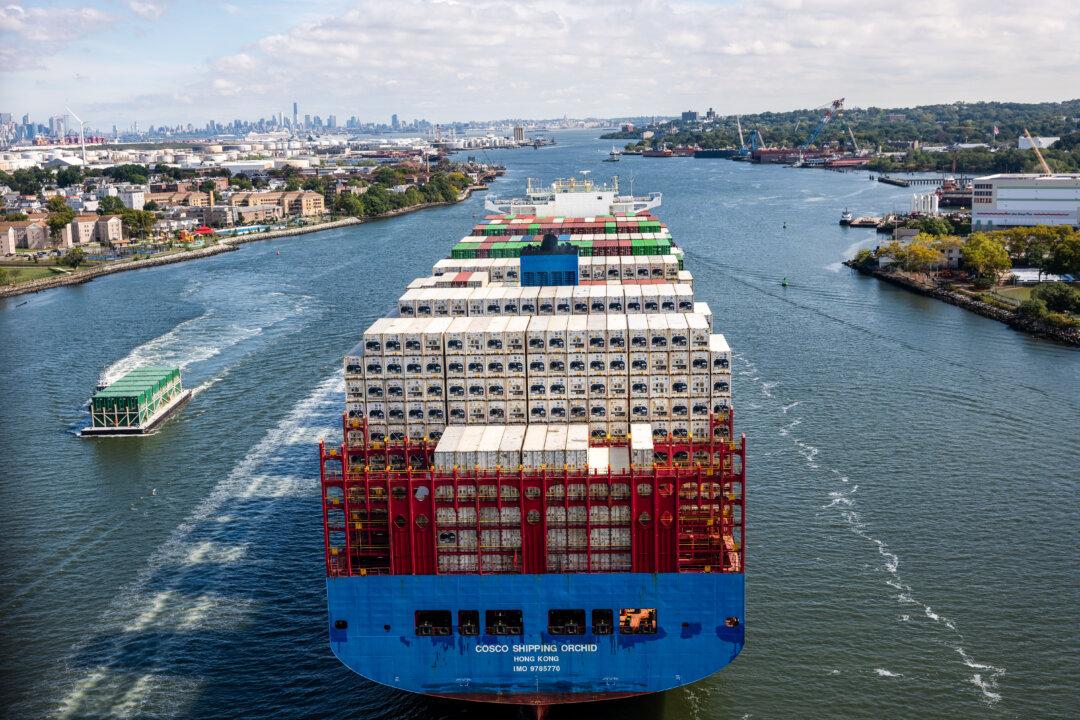U.S. East Coast and Gulf port workers went on strike on Oct. 1, halting the flow of about half the nation’s ocean shipping after negotiations for a new labor contract broke down over wages.
The International Longshoremen’s Association (ILA) union, which represents about 45,000 port workers, was negotiating with the U.S. Maritime Alliance (USMX) employer group for a new six-year contract ahead of the deadline, which expired at midnight on Sept. 30.





